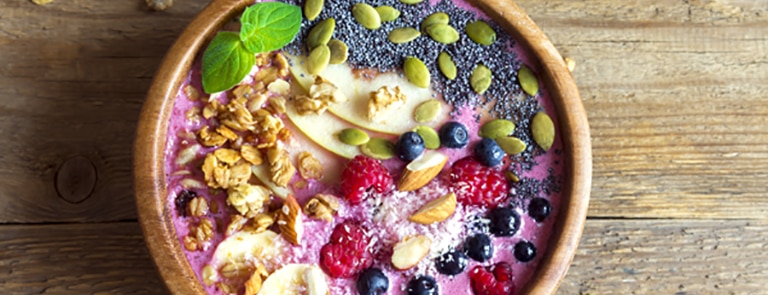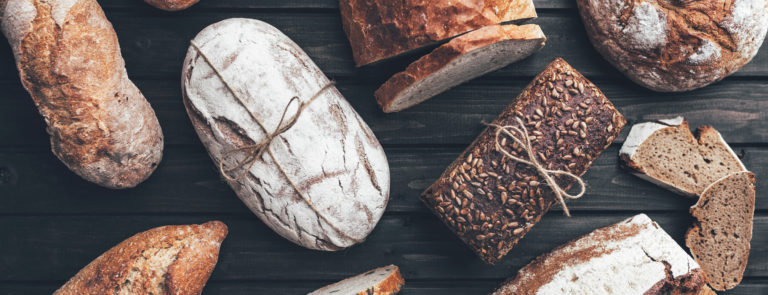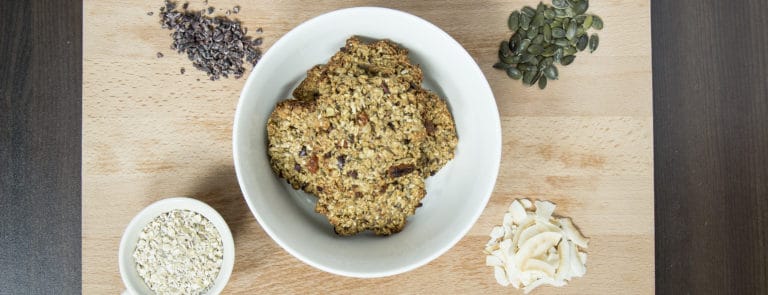10% off £35
Code:SAVE
The ultimate beginners guide to going vegan

Discover what it means to 'go vegan', how to transition to a vegan lifestyle, plant-based food options, and how going vegan could even benefit your health.
About 1.5% of us in the UK are vegan.1 That may not sound like a lot, but it adds up to over a million people. And more are making changes every year.
Considering the switch? Here’s all you need to know...
What does being vegan mean?
A vegan diet ditches animal products and their derivatives, like meat, eggs, and dairy. It’s generally driven by concern for animal welfare and the environment, plus the desire to add more plants into your diet.
For many, it also cuts out products and services (where possible) that harm, exploit, or use animals.2 That might include clothes, cosmetics, and even furniture that contain animal derivatives or are tested on animals.
What’s off the menu?
- Meat and fish
- Egg
- All dairy, including milk, butter, and cheese
- Honey
- Gelatine, often found in jelly and sweets
What’s on the menu?
Maybe you’re worried about a vegan diet being restrictive. But, in the UK, all of the top ten supermarkets have their own vegan ranges.1 You’ll find options for just about anything!
- But the base of a vegan diet can include: Fruit and veg
- Beans, legumes, and pulses
- Plant-based meat alternatives and tofu
- Vegan dairy alternatives, like plant milk and cheese
- Grains
- Most dried pasta
How can I get protein?
Sometimes, people wonder if a vegan diet will give them enough energy and keep them feeling full.
Since meat and dairy are good sources of protein, it’s important to find replacements when you go vegan. Luckily, there are loads of vegan protein options! Try:
- Lentils: A nutrient-dense legume suited to dhals, soups, stews, or salads.
- Tofu: Made from soybeans, tofu offers about 17g of protein per 100g (though this varies on the product).3 Its versatile nature allows for a wide range of uses, including in stir-fries, scrambles, and grilled dishes.
- Black beans: Add into burritos, salads, or veggie burgers for a tasty protein boost.
- Quinoa: This grain-like seed contains approximately 4.4g of protein per 100g (depending on the kind you buy) and can be used as a base for grain bowls, side dishes, or salads.4
- Porridge oats: Jazz porridge up with nuts, seeds, or plant-based protein powders for a nutritious and filling breakfast option.
- Meat substitutes: These vary in protein content, but they’re often another great source.


How to tell if food is vegan
Packaged food should clearly state it, either by saying “suitable for vegans” or by having the Certified Vegan logo on it. Many vegans also steer clear of whey, casein, and lactose, as they come from milk.
Easy vegan food swaps
Dairy alternatives
Look out for oat, pea, almond, cashew, and soy versions of your usual dairy products.
Vegan milks, butters, cheese, creams, and even yoghurts are now in most supermarkets.
Nutritional yeast is a great substitute for cheese in cheese sauce, too.
Egg replacers
There are a few egg alternatives you can use, depending on what you want to make. Here are a few useful swaps to know:
- Flaxseed for dense baked goods like banana bread & muffins
- Baking soda & vinegar for fluffier bakes such as sponge cake
- Aquafaba (chickpea water) in place of egg whites in meringues and marshmallows
- Dairy-free yoghurt alternative in cookies and cakes
For something closer to scrambled eggs, try firm tofu.
Meat substitutes
You’ll find convenient versions of your usual staples in supermarkets – think vegan sausages, burgers, bacon, or “meat” pieces.
But you can also go for tofu (made from soy milk), tempeh (made from fermented soybeans), and seitan (a high-protein, meaty-textured option made from wheat gluten).
Nutrition: Now what?
Check you’re getting all the nutrients you need to be healthy. A vegan diet may sometimes lack:5
- Calcium, important for bone and teeth support 6
- Iron, needed to make red blood cells7
- Vitamin B12, also important for normal energy metabolism8
- Omega-3 fatty acids for heart health9
- Iodine is needed to support thyroid hormone function10
Is a vegan diet healthier?
That depends on what you eat! A “healthier” diet involves making mindful choices and prioritising nutrient-dense options, regardless of whether you're vegan or not.
Some people find that going vegan helps them lean towards whole plant foods, which are rich in fibre, vitamins, and minerals, and tend to be lower in saturated fat and cholesterol.
However, vegan junk food still exists!
As with any diet, it’s all about balance. That said, there are many benefits to going vegan...


Need more reasons?
1. Ethical reasons
Specifically issues of animal maltreatment in the food industry, and the ethics of killing sentient creatures.
You might also go plant-based because of the environmental issues related to livestock farming (like deforestation).11
2. May support weight management
Anyone can have a balanced diet, regardless of whether they’re vegan or not. But some meats are a major source of saturated fat, which can have dangerous effects on our weight and heart if eaten in excess.12
This may be helpful if you’re looking to maintain or lose weight. Just be sure to include all the vitamins and nutrients that your body needs to fuel you.
3. May lower cholesterol
There’s some evidence from the European Society of Cardiology to suggest that following a vegetarian or vegan diet could see a reduction in total cholesterol and lipoproteins.13
4. May support healthy blood pressure
The European Society of Cardiology also advised that vegans may have lower blood pressure and may be at lower risk of cardiovascular disease.13
Are there any side effects?
Everyone will react differently to a plant-based diet, and you might experience some of the following:
- Nutrient deficiencies: Some nutrients like vitamin D, Omega-3s, iron, calcium, iodine, and vitamin B12 can be harder to obtain from plant-based foods. Ensure you include these nutrients in your diet or consider a supplement if that’s not possible.5,9
- Weight loss or gain: Switching your diet means your body will have to adjust, so your weight may fluctuate during this time.
- Feeling tired: When you first start a vegan diet, you may eat fewer calories or not get enough nutrients as you get used to what your body needs.
- Digestive problems: Your gut will need time to adapt, especially if you’re increasing your fibre intake! During the transition period, you may experience digestive issues like bloating, gas, or constipation.14 If you experience these, please speak to your GP
The final say
- The vegan diet can be a little tricky to navigate at first, but can be very worth it for most people.
- Many foods are naturally vegan - not just fruit and veg, but pre-made treats you might not expect.
- It’s essential to get all the nutrients you need, particularly vitamin B12, iron, calcium, iodine, and Omega-3s.
- Take it easy at first, as this can be kinder to your body and help you transition to a plant-based life more smoothly!
The advice in this article is for information only and should not replace medical care. Please check with your GP or healthcare professional before trying any supplements, treatments or remedies. Food supplements must not be used as a substitute for a varied and balanced diet and a healthy lifestyle.
Before taking any supplements or minerals, it’s best to make sure you’re getting all the nutrients through your diet first.
Food supplements must not be used as a substitute for a varied and balanced diet and a healthy lifestyle.
Related Articles
Shop by wellness goal
Sign up for exclusive offers
Plus, get expert advice to support your health & wellness straight to your inbox when you sign up to Holland & Barrett emails.
Read our
privacy policy














